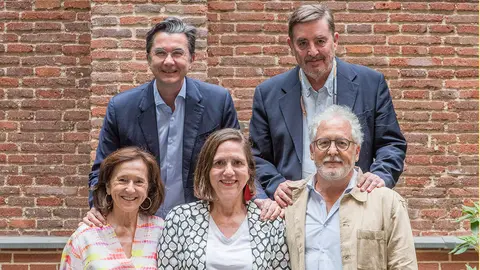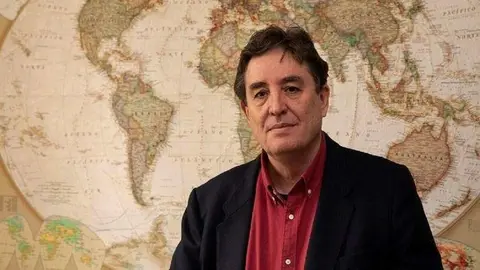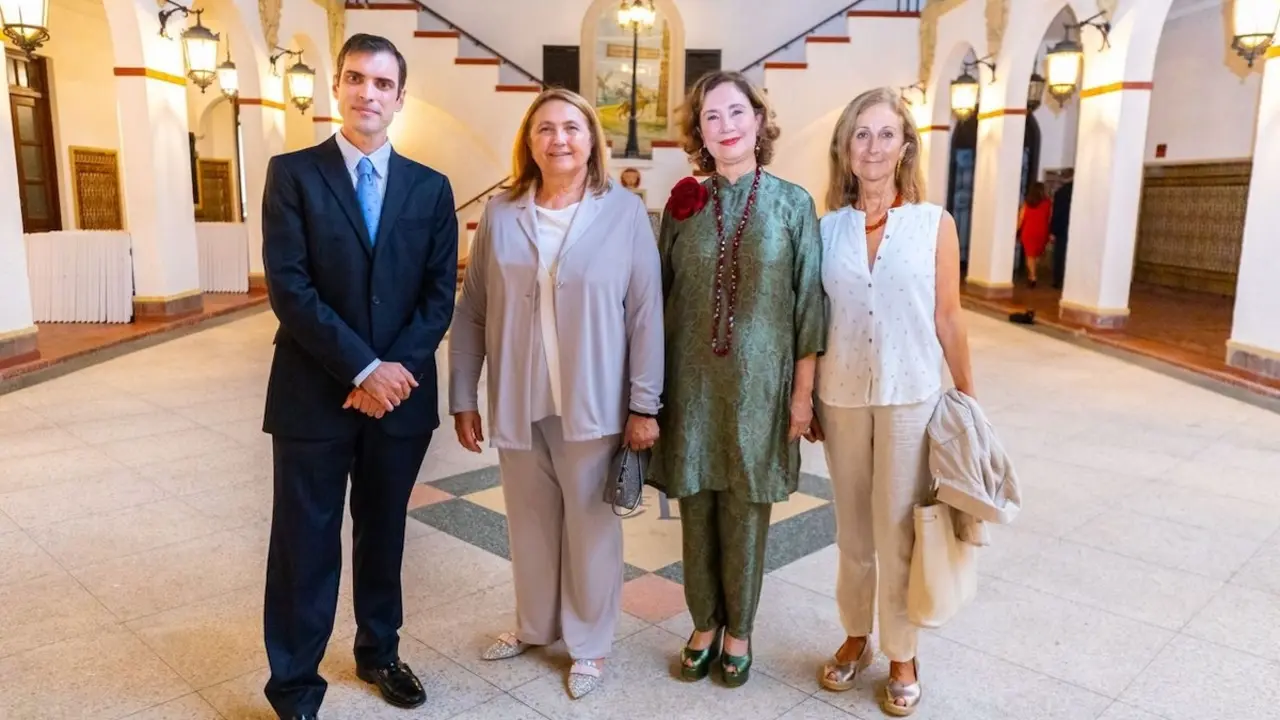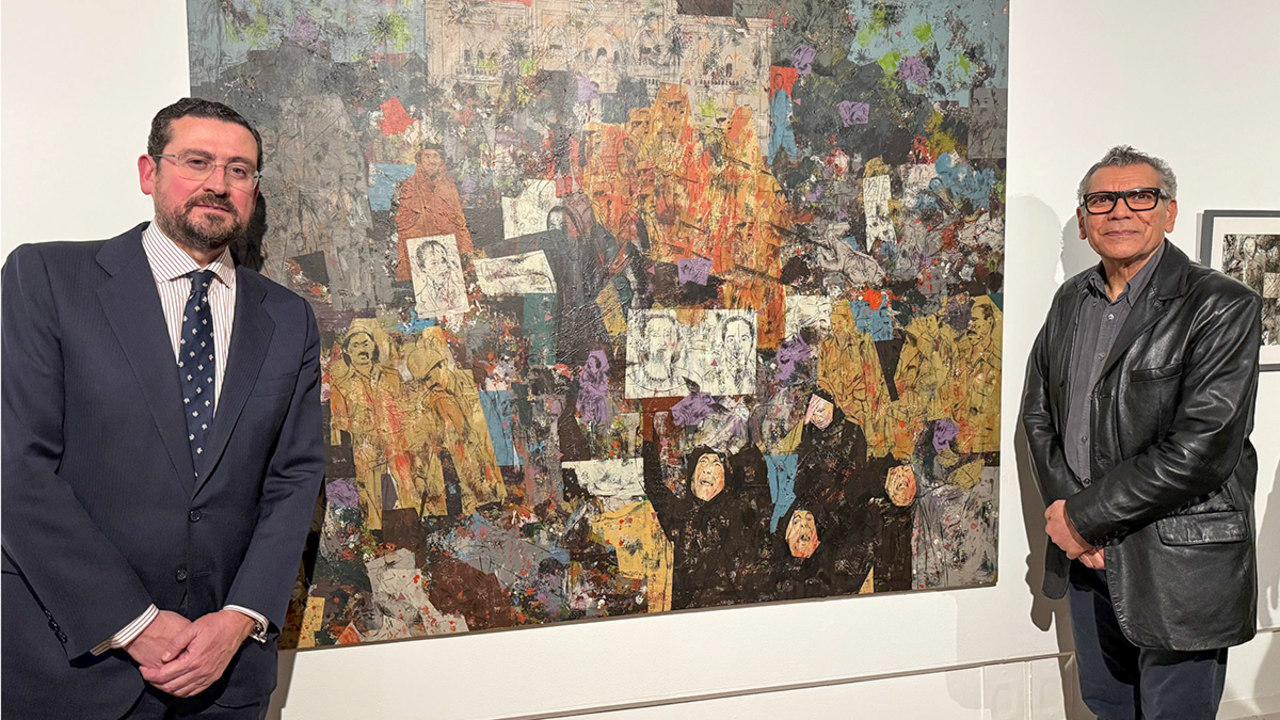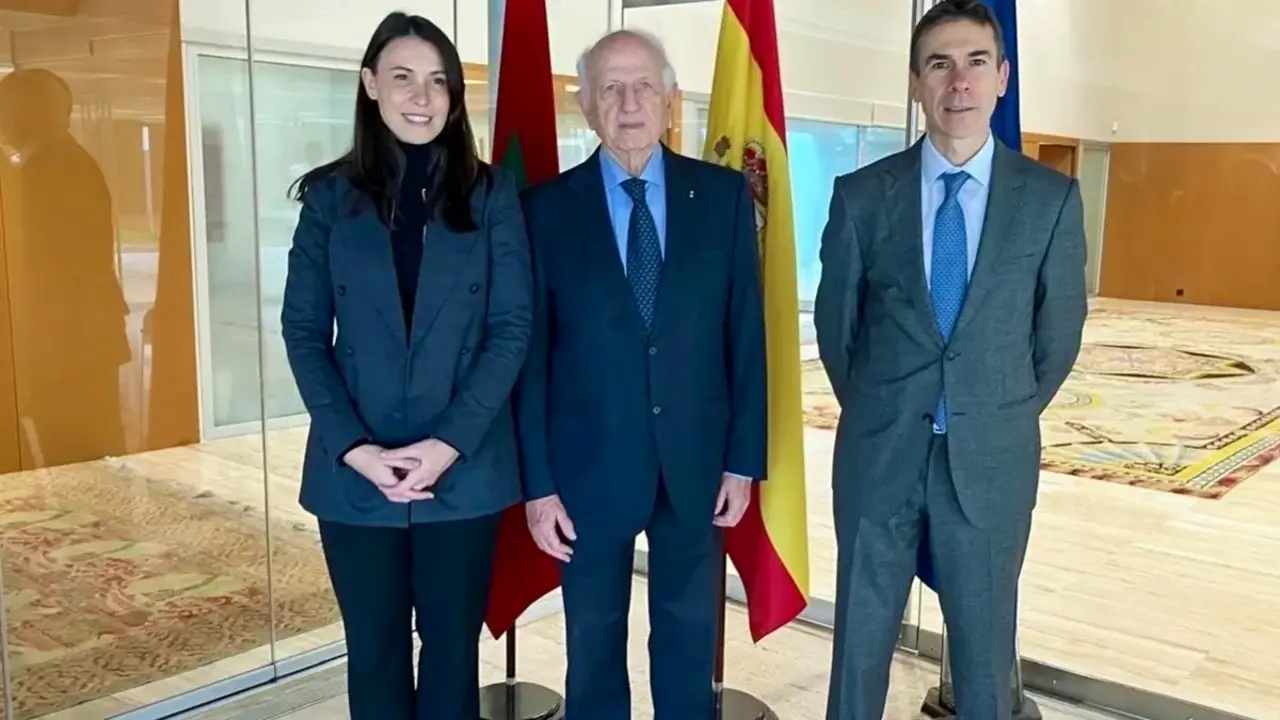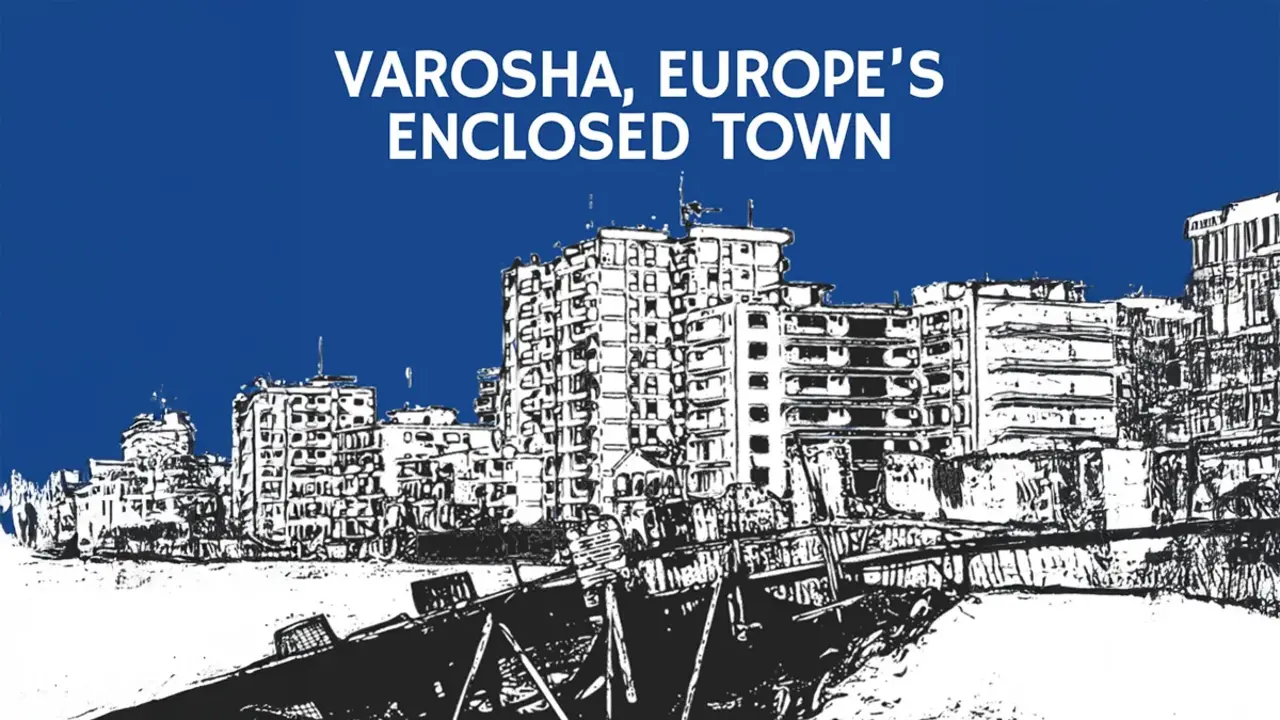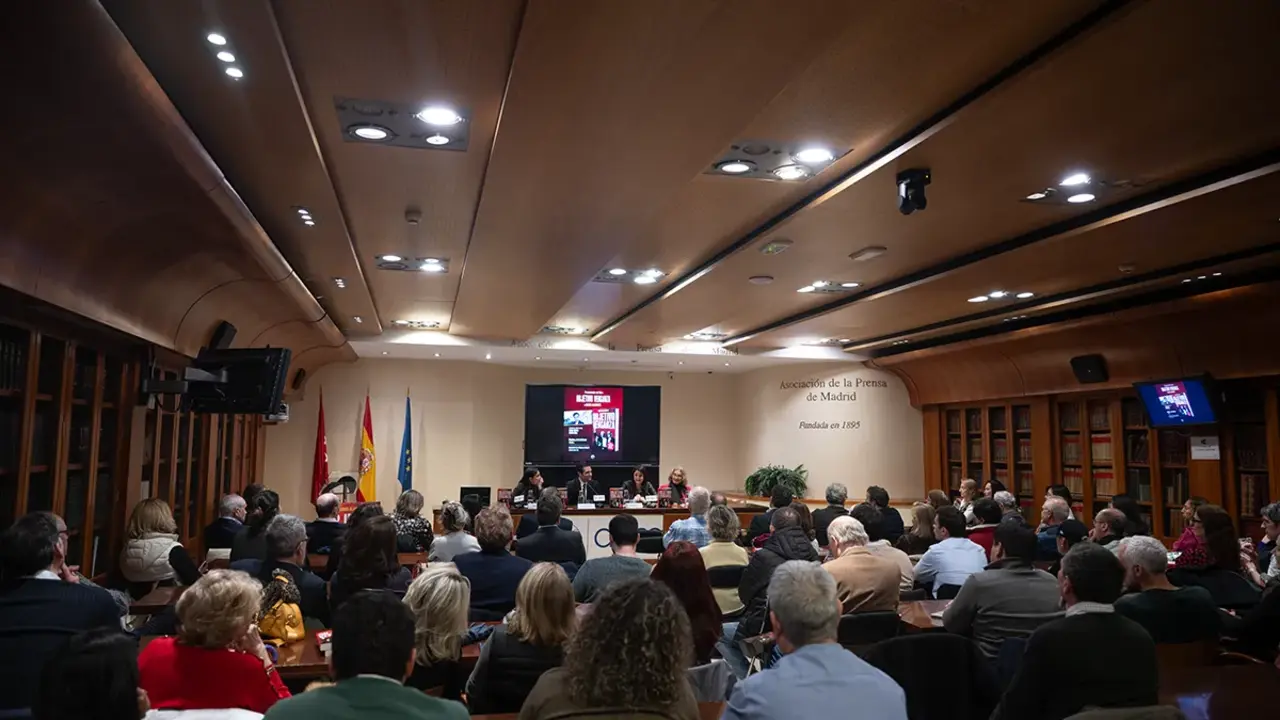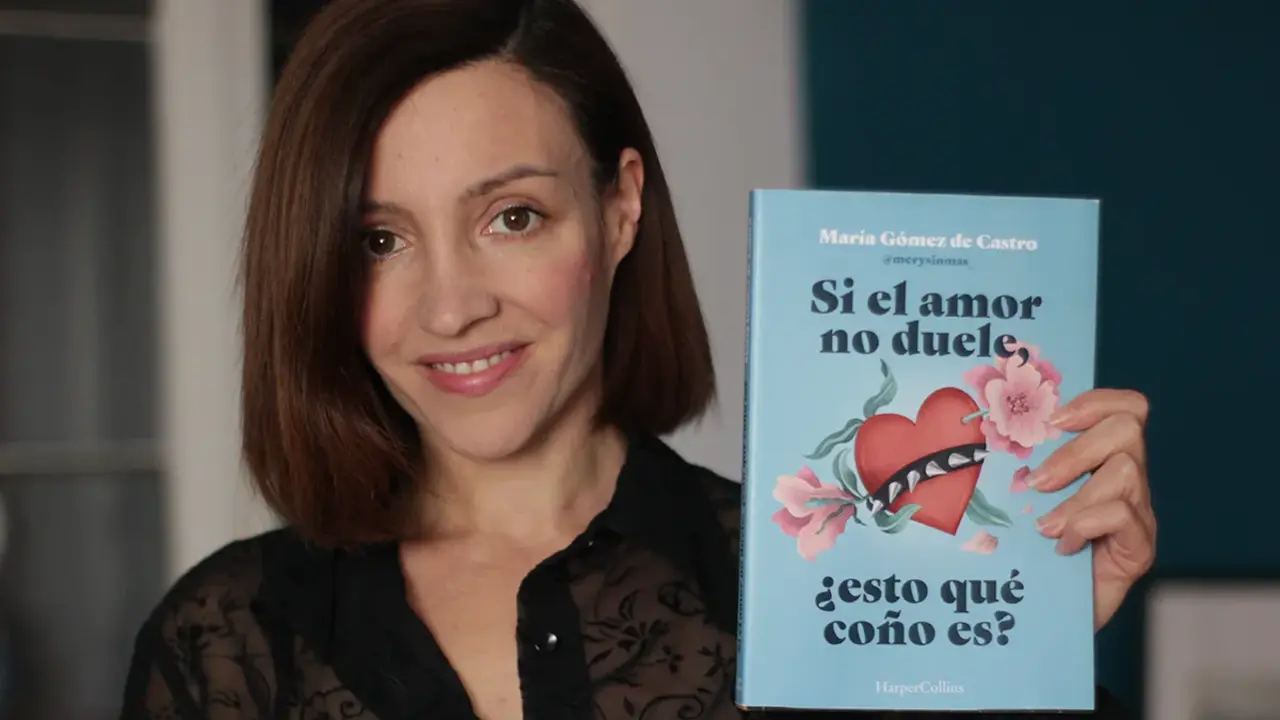Adonis receives the Joan Margarit International Award: ‘Poetry lives beyond times, places and cultures’
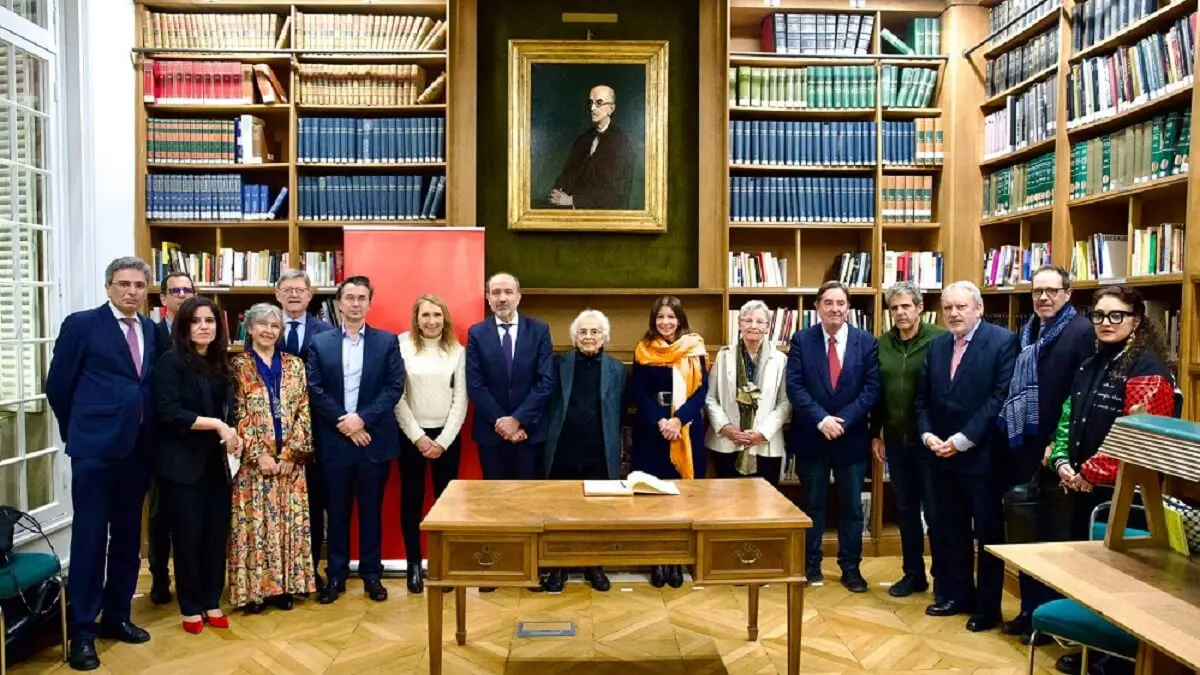
- The ‘dialogue with the story of Adonis’
- A lyrical work ‘of indisputable quality’
- Adonis, pioneer of modern Arabic poetry
‘Poetry exists in a human place and in a human culture common to all’, celebrated Adonis, who during his speech praised the importance of poetic writing in today's society, calling for its importance “not only in the reflection of the present, but in the preparation of what may come”.
‘Poetry can give light to a new meaning for human beings, as it unites them with their thoughts’, he remarked after receiving the award from the Mayor of Paris, Anne Hidalgo, before going on to describe this literary genre as “the language of revelation”.
‘It always renews the relationship between the world and poetic language, it offers a language inhabited by questioning and is the language of revelation. It does not transform events or change situations, but it creates a cloud of consciousness that allows the individual to see the world in a new and different way,’ the Syrian poet celebrated during his acceptance speech.
The author of ‘The Book’ claimed that poetry is neither a ‘lost paradise’ nor the image of a bygone ‘golden age’, but is the ‘light that illuminates the way to the unknown and the risks that remain to be faced’.
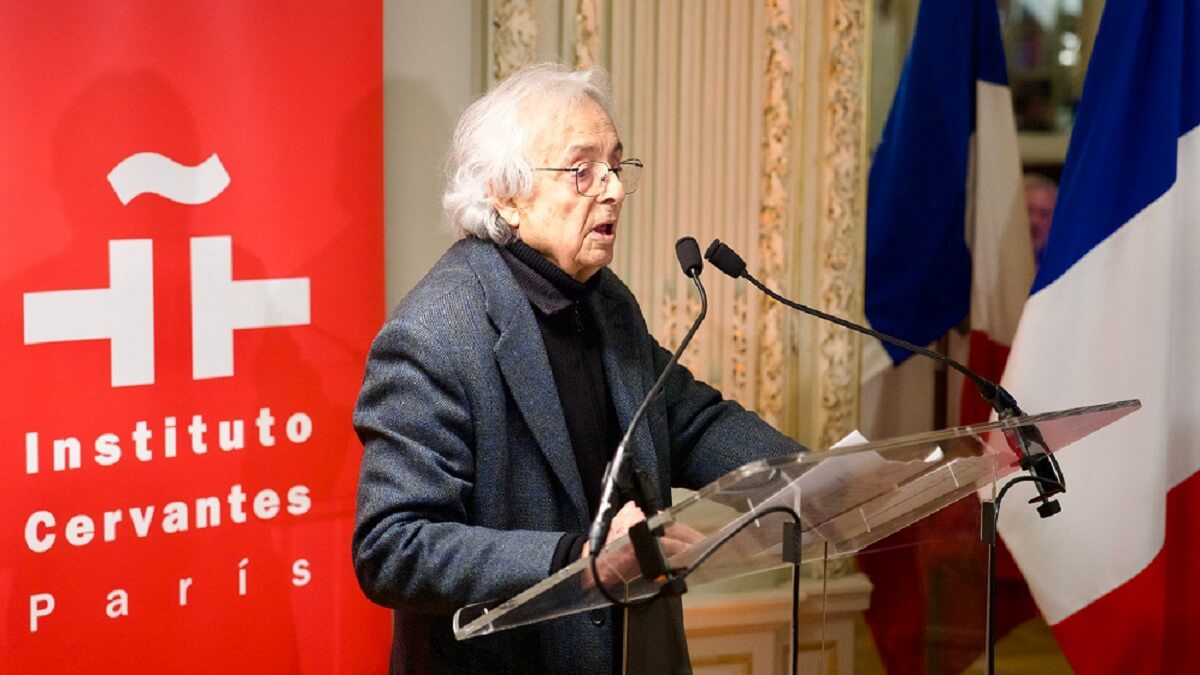
‘If philosophy today does not give us answers to the great human questions; if the sciences and technologies cannot open creative horizons, nor can they give us solutions or allow us to discover paths; we can discover in art, and poetry in particular, that which can shed light on a new meaning for human beings’, he said.
The ceremony was also attended by Luis García Montero, director of the Cervantes Institute; Victorio Redondo, Spanish ambassador to France, and Javier Santiso, founder of the publishing house La Cama Sol.
The ceremony began with the words of the Director of the Cervantes Institute, Luis García Montero, who expressed his gratitude for this celebration of Adonis, ‘a very important and well-recognised poet’ in Hispanic culture, thanks to the work of scholars and translators such as Carmen Ruiz Barrionuevo and Federico Arbós, former Director of the Cervantes Institute in Cairo, Casablanca and Rabat.
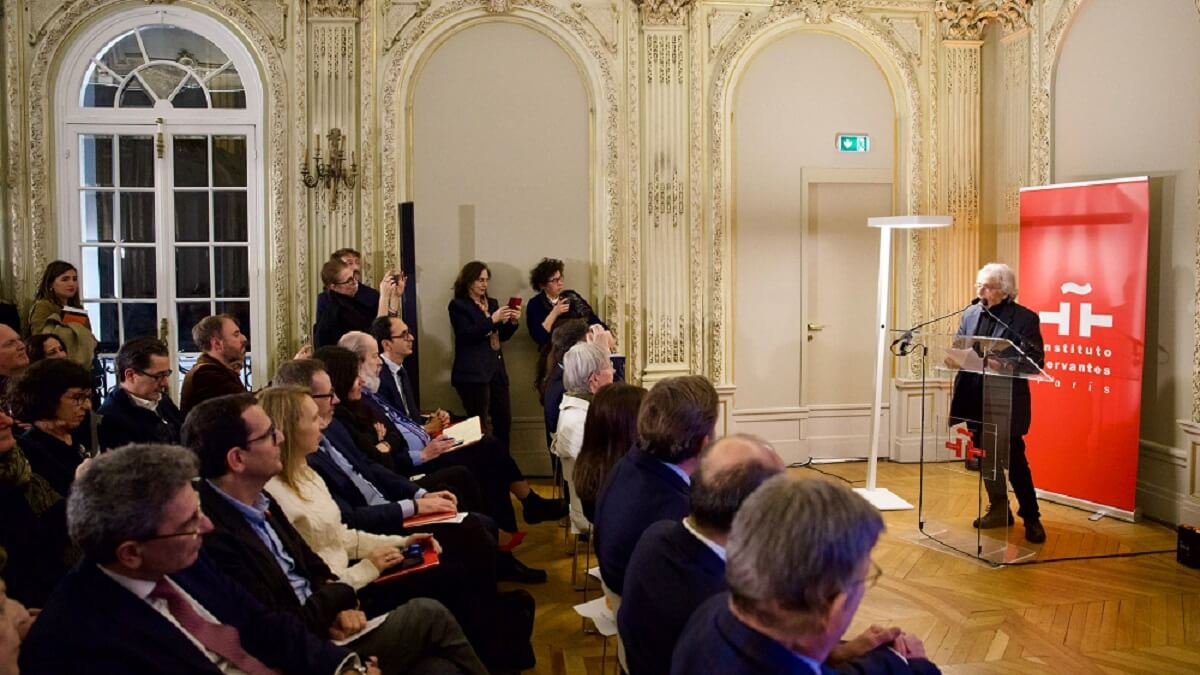
The ‘dialogue with the story of Adonis’
For García Montero, Adonis is a poet who ‘has always sought his own identity, but without ever wanting to remain enclosed within it’. He cited some of the award-winning author's important works, such as Epitafio para Nueva York (a ‘conversation with Lorca and his “Poet in New York”, with Walt Whitman in between’) and Zócalo, in his look at Mexico.
‘His dialogue with history allows him to learn about the past in order to become aware of the pains of the present’, remarked the director of the Cervantes, for whom the Syrian writer has been able to “sustain himself in his own subjectivity in the face of the situation of the world, delving into the depths of his being and even his own body”.
For her part, the Mayor of Paris, Anne Hidalgo, recalled her Spanish roots, affirming that the awarding of this prize is ‘a source of pride’ that serves as an example of ‘a city of culture, open and committed to artists’. The politician recalled Adonis' status as an exile, alluding to his country of origin on a day “so special, where something is happening that we still don't know which side it will fall on”.
For Hidalgo, this world cannot ‘live or think without artists’, vindicating their importance in turbulent times. ‘Adonis is a very great artist, someone who has known how to live in a place that was not the land where he was born, but from all this he has made a work that touches the citizens of the whole world’, he pointed out.
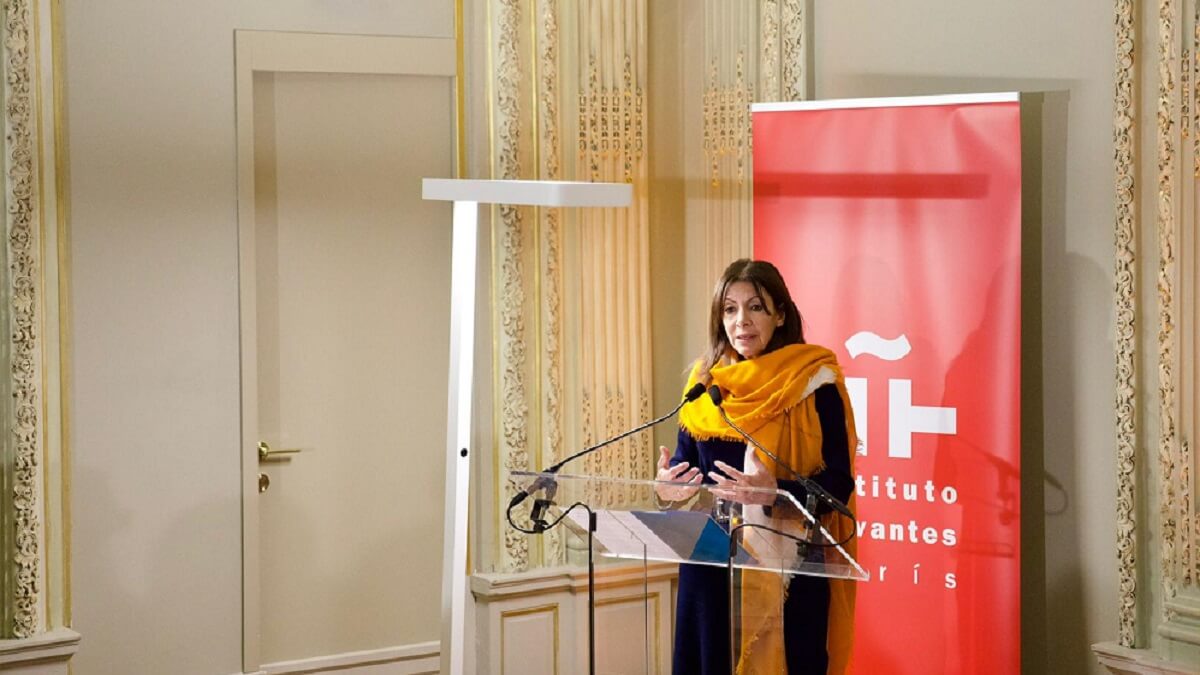
‘We know how the human condition ends. To overcome it, artists and poets are here, and they were born to allow us all to share horizons, imaginaries that are not enclosed in any frontiers, like thought,’ he concluded.
Yolanda Soler, poet and director of the Cervantes Institute in Amman, who read extracts from Adonis' work in Spanish, and Ninar Esber, artist and daughter of the poet, who recited his verses in Arabic, also took part in the closing ceremony. In addition, Joan Margarit's son, Carles Margarit, performed two pieces on the saxophone to close the event.
A lyrical work ‘of indisputable quality’
Meeting last June, the jury of the Joan Margarit Prize - which received more than 30 nominations from poets from all over the world with long and internationally recognised careers - unanimously decided to award the prize to Adonis ‘for a lyrical work of indisputable quality and for his cultural dialogue between civilisations, between East and West’, as stated in the minutes signed by Luis García Montero, Javier Santiso, the Colombian writer Héctor Abad Faciolince, the former director of the Biblioteca de la Biblioteca de la Música, and the former director of the Biblioteca de la Música, Javier Santiso, the Colombian writer Héctor Abad Faciolince, the former director of the Biblioteca de la Música and the former director of the Biblioteca de la Música; the former director of the Biblioteca Nacional, Ana Santos, and Mònica Margarit, the poet's daughter.
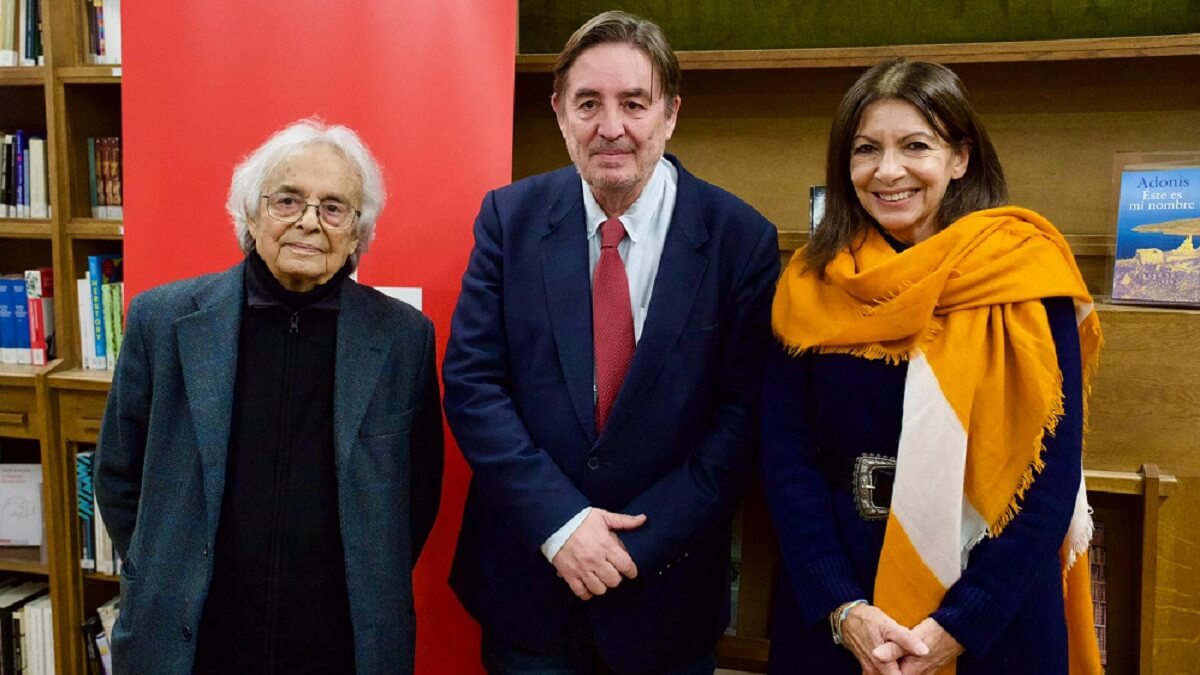
As part of this recognition, the award-winning poet's own speech will be included in a limited edition published by La Cama Sol, which will include works of art and poems, with translations into Spanish, English and French.
The award, created for the occasion by the sculptor Cristina Almodóvar (Madrid, 1970), is a book-object made with mixed techniques - drawing, sculpture and digital printing - that unites art and poetry. In the artist's own words, the piece ‘goes beyond two-dimensional representation, escaping from it. Poetry does the same. It transcends the life of the author. The name and work of Joan Margarit crosses borders with this award’.
This is the second edition of this award, promoted by the Cervantes Institute and the publishing house La Cama Sol and the family of the poet Joan Margarit (1938- 2021), to promote the figure of the Catalan author, winner of the Cervantes Prize and Queen Sofia Prize for Poetry, among others, internationally, and to celebrate the talent of outstanding contemporary authors.
Adonis, pioneer of modern Arabic poetry
The winner of this second edition of the Joan Margarit International Poetry Prize, Adonis, was born in Syria in 1930, but has spent his entire literary career in Lebanon, where he won the National Poetry Prize in 1974. At the age of 24, he spent eleven months in prison, accused of subversive activities. Shortly afterwards, he founded the magazine Shi'ir (Poetry) and began an intense creative work recognised with countless prizes, the most recent being the prestigious Goethe Prize, an award for an entire literary career, and Els Premis Internacionals Terenci Moix, both in 2011; the Sting Dagerman Prize, in 2016, and the PEN/Nabokov Prize, in 2017.
His works include some of the most significant in contemporary Arabic poetry, such as ‘Songs of Mihyar the Damascuser’ (1961), ‘Book of Fleeing and Moving through the Climates of Day and Night’ (1965), ‘Epitaph for New York’ (1971), and his monumental three-volume work ‘The Book’. He is also a scholar of Arabic poetry and literature, as revealed in his essays on poetry and poetics ‘The Divan of Arabic Poetry’ (1964), ‘Introduction to Arabic Poetry’ (1976), ‘Arabic Poetics’ (1989) and ‘Sufism and Surrealism’ (2008). Adonis is known as a pioneer of modern Arabic poetry that draws on the sources of world literature and reflects his commitment to human rights. He has been considered a candidate for the Nobel Prize for Literature on several occasions.

